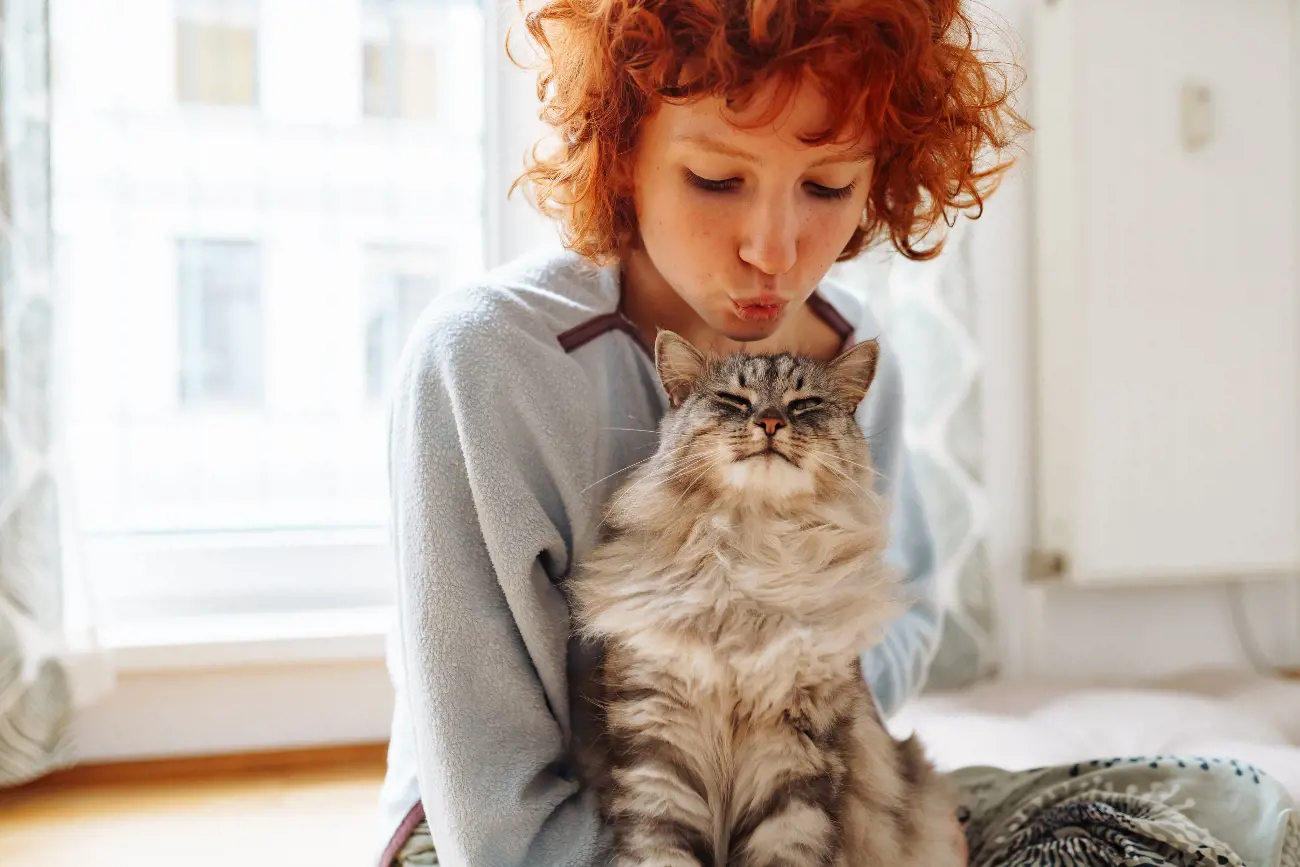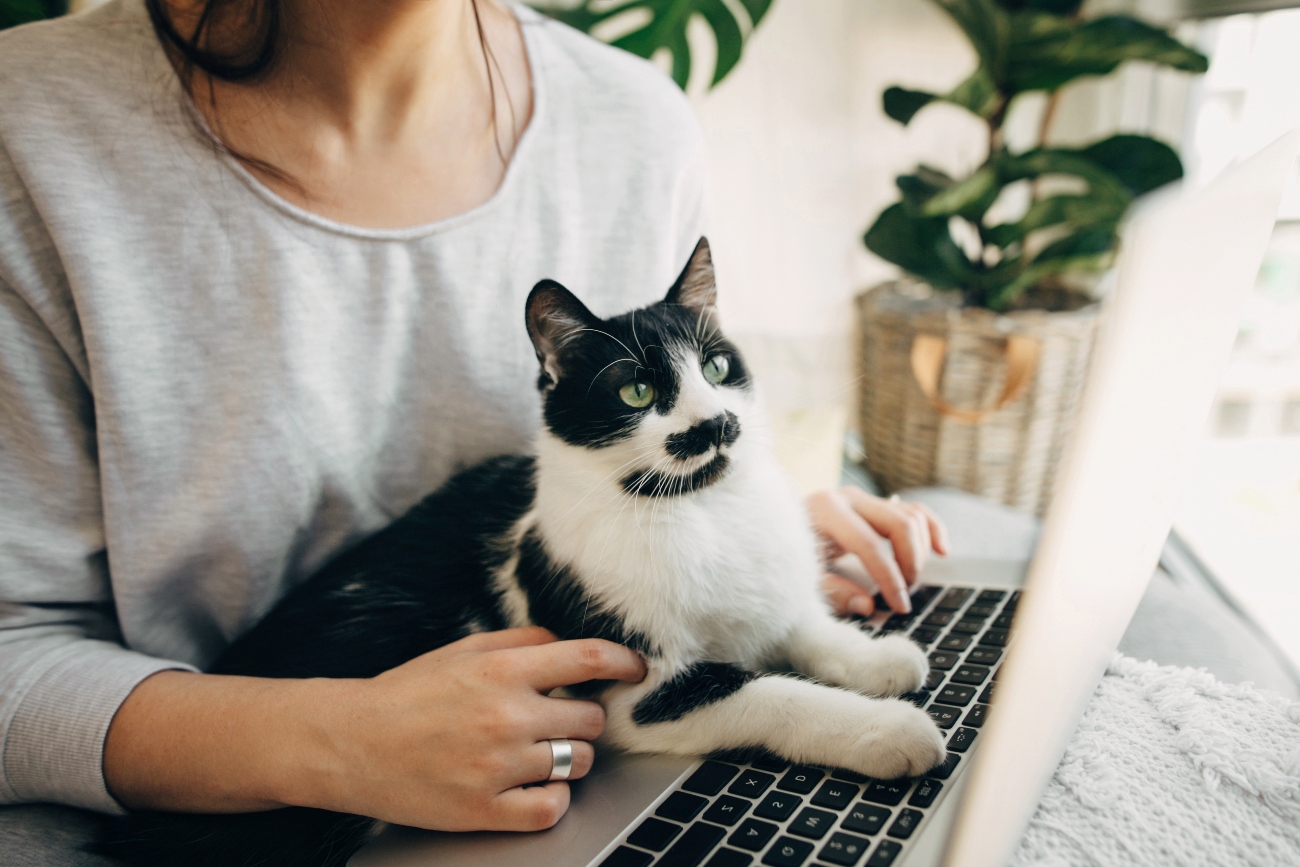How much attention do cats need?
15th January, 2024

Cats, with their whimsical quirks and independent nature, can be intriguing companions. They are known for their self-reliance yet can form strong bonds of affection with their human counterparts.
Determining just how much attention do cats need a day can be a delicate balancing act as all cats are unique, with individual personalities and needs, but 20-30 minutes of attention each day is recommended.
Understanding cat behaviour
Before we delve into the specifics of how much attention your feline friend may require, let's first try to decode some common cat behaviours.
The hunting instinct
Regardless of their domesticated lifestyle, cats are natural hunters. This instinct for hunting and tracking is just as strong in indoor cats who've never seen the outdoors. Engaging this instinct through play can be a great way to provide both physical and mental stimulation for your cat.
The solitary streak
Cats are often considered solitary creatures. Feral cats, for instance, usually hunt alone and only interact for mating or in sibling colonies. While this solitary behaviour can be noticed in domesticated cats as well, it doesn't mean they don't crave companionship.
The bonding process
Cats can form deep bonds with their owners, but they're usually selective about who they bond with the most. In a house full of people, cats often have a favourite person they cling to. However, they can make excellent family pets if given the right environment.
How much attention do cats need each day?

While individual needs may vary, on average, experts suggest that most cats require around 20-30 minutes of undivided attention each day. This attention can take the form of playtime, cuddling, grooming, or simply relaxing together.
Playtime
Exercise plays a crucial role in a cat's health, helping manage anxiety and stress. Most adult cats require around two or three short exercise sessions daily. Interactive toys, feather teasers, and scratching posts can be excellent tools for stimulating your cat's natural hunting instincts, and ensure they get the physical activity they need.
Grooming
Regular grooming can be another bonding activity that most cats enjoy. Brushing your cat's fur not only helps maintain their coat but also provides a comforting and bonding experience.
Training
Training your cat can be another way of engaging them and getting their attention as a cat owner. Simple tricks such as responding to their name, shaking hands, or even walking on a leash can be easily taught using reward-based techniques.
Relaxing with owners
Most cats enjoy spending downtime with their owners. Whether it's sitting beside you on the couch or snuggling up in bed, cats tend feel secure when their owners are nearby.
Talking
Many cats enjoy "conversations" with their humans and respond with sweet meows when spoken to. Even if your feline companion is quiet, they will appreciate your conversation.
How many hours a day should you spend with your cat?
Well, there's no one-size-fits-all answer to this question as it largely depends on the cat's age, health, and personality. However, most experts agree that spending quality time with your feline friends is crucial for their well-being and happiness.
On average, it's recommended for cat owners to dedicate at least two hours per day to your furry companion. This could involve feeding, grooming, playing, or simply cuddling up on the couch.
Kittens require more attention and playtime due to their energy levels and curiosity. Senior cats may require less active playtime but still benefit from regular mental and physical stimulation.
Remember, it's not just about quantity but also quality. Make sure the time you spend together is engaging and stimulating for your cat. Use toys, puzzles or interactive games to keep them entertained and mentally sharp.
Giving your cat the right amount of attention will strengthen the bond between you. However, you should also remember every cat's personality is different so it's important to pay attention to their unique needs and preferences. Your cat will let you know how much attention they need.
Signs your cat needs more attention
Cats have their unique ways of communicating their needs. Here are a few signs that may indicate your cat is craving more attention:
Destructive behaviour
Destructive behaviour such as tearing up the carpet or clawing the furniture can be a clear sign that your cat is bored or seeking attention.
Getting in your way
Your cat jumping on your lap or trying to weave into whatever you're doing could be a clear call for attention.
Unusual silence or meowing
If your usually chatty cat goes silent or your quiet cat suddenly becomes vocal, they're trying to communicate something to you.
Increased Activity
If your cat is bored or seeking attention, they might exhibit sudden bursts of energy and run around, often knocking things over.
Aggressive Behaviour
In extreme cases, if your cat isn't getting the attention they crave, they might resort to aggressive behaviour such as clawing or biting. The key is to understand your cats body language and manage any unwanted behaviour.
Balancing attention: how much is too much?
While it's important to pay attention to your cat, it's also crucial to understand that too much attention can lead to clingy behaviour. If your cat is following you around the house, demanding affection constantly, or getting overly excited when you return home, it could be a sign that your cat is overly dependent on your attention.
Should I take my cat to the vet?
If your cat is suddenly acting out of the norm and displaying clingy behaviour, it's a good idea to get them checked by a veterinarian. Increased vocalisation, lack of appetite, decreased energy, or accidents outside the litter box could indicate that your cat isn't feeling well.
Keeping your cat safe and happy

Understanding how much attention do cats need each day can help you create a healthy routine for your feline friend. Some useful tips to keep your cat safe, happy, and stimulated include:
Walks
While it might seem unconventional, taking your cat for a walk can be a great way for them to burn off energy and explore their surroundings.
Weight management
Regular play and exercise can help keep your cat's weight in check, reducing the risk of obesity.
Cat insurance
To ensure your cat's health and well-being, it's also advisable to consider getting cat insurance. For a quick quote, you can visit our website or get in touch with our specialists on 0330 102 5748.
Do cats need to socialise with other cats everyday?
Contrary to popular belief, cats are not as solitary as they are often portrayed. Yes, they are independent creatures who can spend hours amusing themselves with a single toy or even just a ray of sunlight.
However, this doesn't mean that they don't enjoy or benefit from social interaction. Cats, like all animals, do have social needs, but these needs vary widely depending on the individual cat's personality and upbringing.
Cats who have been raised with other cats or exposed to other cats frequently in their early life might have a stronger need for feline companionship. They may thrive in environments where they can interact with their own kind regularly.
On the other hand, cats that have been solitary for most of their lives may be more content to live without the company of other cats. It's all about understanding your cat's individual needs and providing the right balance of social interaction for them.
So, while cats may not need to socialise with other cats every day, they do benefit from some form of social interaction, whether it's with other cats, humans or even other animals.
Indoor cat attention needs
Indoor cats require just as much attention as their outdoor counterparts, if not more. Meeting your indoor cat's attention needs is crucial for their overall well-being and happiness. They crave mental stimulation, physical activity, and of course, your affection.
Play with them using toys or laser pointers, provide scratching posts, and set aside time each day for cuddling and petting.
Remember, a bored indoor cat can resort to destructive behaviour and can lead to your cat craving attention. Hence, it's important to keep them engaged with activities they enjoy. Fulfilling your indoor cats attention needs will not only keep them happy but also strengthen your bond with them.
Conclusion
Cats, while independent, need regular physical activity and daily love and attention. The exact amount and type of attention your cat needs are specific to them.
Observing your cat's behaviour is the best way to determine if they're getting enough attention. Remember, a happy and stimulated cat leads to a happy home!
Helpful Pages
Recent Posts
Pet Insurance Quote
- 98% claims paid *
- Claims paid directly to vets
- 24/7 vet video consultations
- Interest free monthly payments




